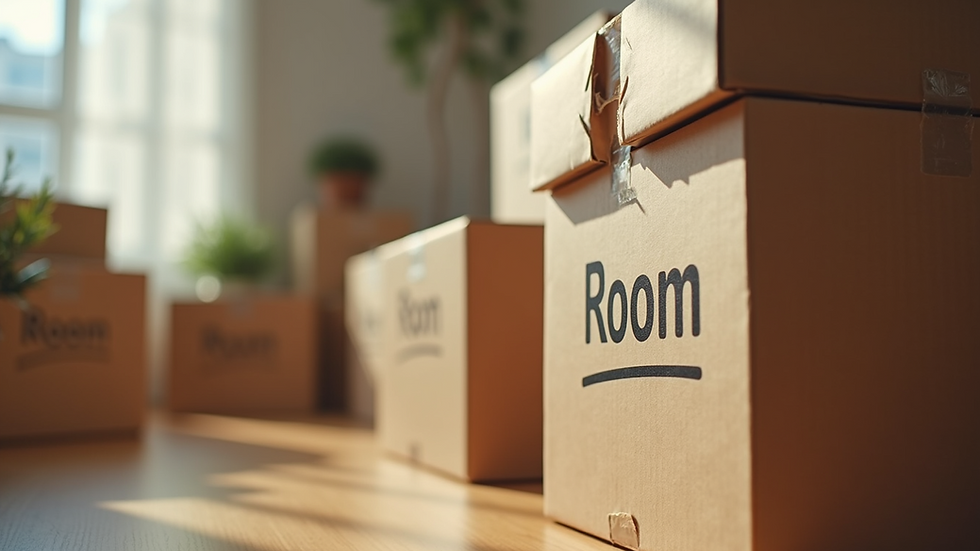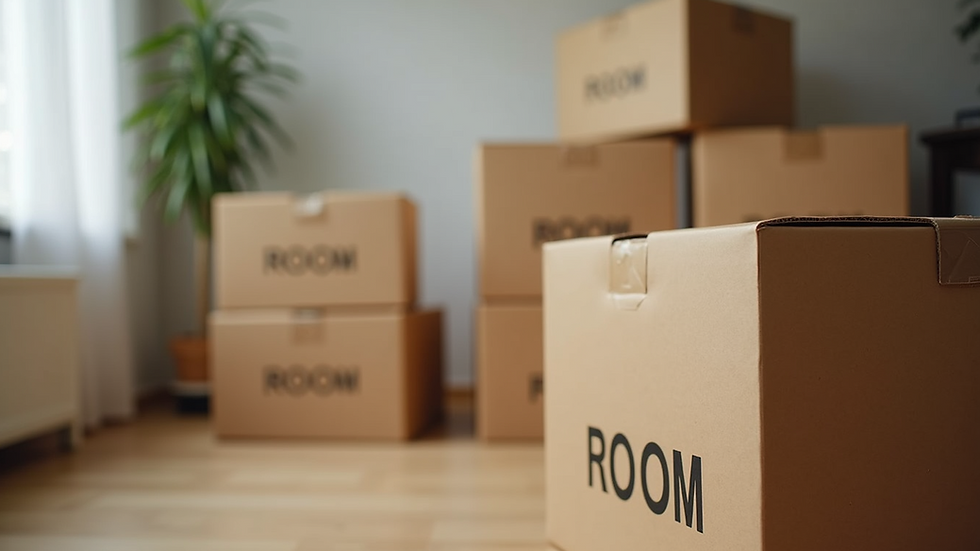Essential Advice for Your Smooth Move
- wemovedmv1
- Nov 18, 2025
- 3 min read
Moving to a new home can be exciting but also overwhelming. Whether you are relocating across town or across the country, careful planning is key to a smooth transition. From organizing your belongings to coordinating with movers, every step requires attention to detail. This guide offers essential relocation tips to help you stay on track and reduce stress during your move.
Planning Your Move: Key Relocation Tips
The foundation of a successful move is thorough planning. Start by creating a timeline that outlines all the tasks you need to complete before moving day. This includes notifying utility companies, changing your address, and scheduling your moving company.
Here are some practical steps to consider:
Declutter early: Sort through your belongings and decide what to keep, donate, or discard. This reduces the volume you need to move and can save money.
Gather packing supplies: Stock up on boxes, tape, bubble wrap, and markers. Having everything ready will make packing more efficient.
Label boxes clearly: Use a color-coding system or detailed labels to identify the contents and the room they belong to. This will speed up unpacking.
Create an essentials box: Pack a box with items you will need immediately after moving, such as toiletries, a change of clothes, and important documents.
By following these relocation tips, you can avoid last-minute chaos and ensure a more organized move.

Packing Strategies for a Stress-Free Move
Packing is often the most time-consuming part of moving. To make it manageable, break the task into smaller sections and tackle one room at a time. Use sturdy boxes and avoid overpacking to prevent damage.
Tips for efficient packing:
Wrap fragile items carefully: Use bubble wrap or packing paper to protect delicate items like glassware and electronics.
Disassemble furniture: Take apart large furniture pieces to make transportation easier and reduce the risk of damage.
Use clothing and linens as padding: Wrap breakables in towels or blankets to save space and protect items.
Keep important documents separate: Store passports, contracts, and other vital papers in a secure folder that you carry with you.
Remember, packing is not just about putting things in boxes; it’s about protecting your belongings and making unpacking easier.
What to Not Let Movers Pack?
Certain items should never be packed by professional movers due to safety, legal, or insurance reasons. Knowing what to exclude from their responsibility can prevent complications.
Items to keep with you or handle personally:
Valuables: Jewelry, cash, and important documents should always be kept on your person.
Perishable food: Movers typically do not transport food items that can spoil.
Hazardous materials: Paint, gasoline, cleaning chemicals, and other flammable or toxic substances are prohibited.
Plants: Many moving companies do not transport live plants due to regulations and fragility.
Pets: Arrange separate transportation for your pets to ensure their safety.
By understanding these restrictions, you can prepare accordingly and avoid delays or extra fees.

Coordinating with Your Moving Company
Choosing the right moving company and maintaining clear communication is crucial. Research companies thoroughly, read reviews, and get multiple quotes before making a decision.
Effective ways to work with movers:
Confirm details in writing: Ensure the moving date, time, and costs are documented.
Provide clear instructions: Let movers know about fragile items, stairs, or parking restrictions.
Be present on moving day: Supervise the process to answer questions and ensure everything goes smoothly.
Keep an inventory list: Track all items being moved to avoid losses.
Good coordination with your movers can save time and reduce stress on moving day.
Settling Into Your New Home
Once you arrive, the work is not over. Unpacking and setting up your new space can be overwhelming, but a systematic approach helps.
Steps to settle in efficiently:
Unpack essentials first: Start with the essentials box and set up your bedroom and bathroom.
Arrange furniture: Place large furniture pieces before unpacking smaller items.
Check utilities: Make sure electricity, water, and internet are working properly.
Explore your neighborhood: Locate nearby grocery stores, pharmacies, and other important services.
Update your address: Notify banks, subscriptions, and other services of your new location.
Taking these steps will help you feel at home faster and reduce the stress of moving.
For more detailed moving advice, consider visiting trusted moving blogs and resources.
Moving doesn’t have to be a daunting experience. With the right preparation and mindset, your relocation can be smooth and even enjoyable. Use these essential relocation tips to guide you through every stage of your move, from planning to settling in. Your new home awaits!





Comments